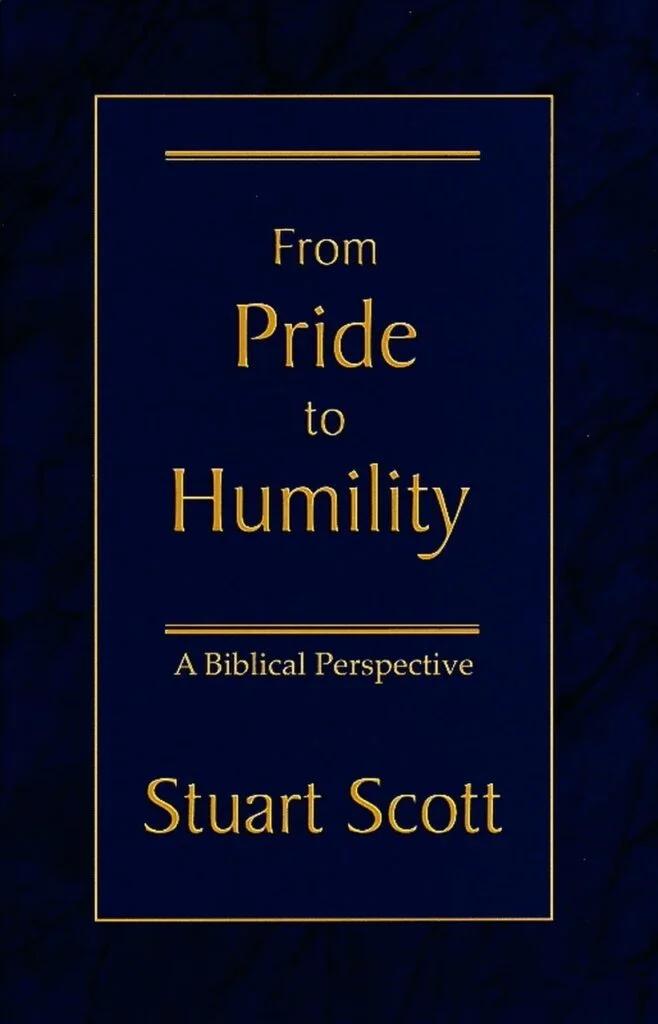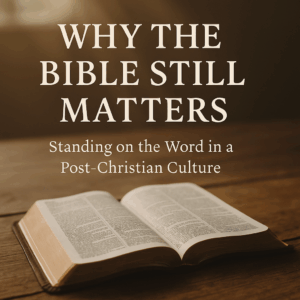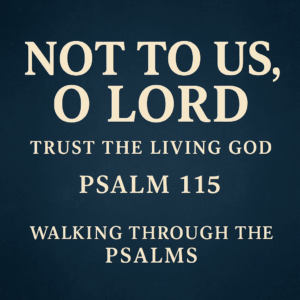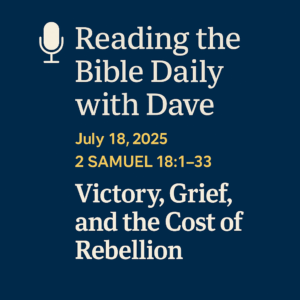⏱️ Estimated Reading Time: 11 min read
Stuart Scott’s book, From Pride to Humility: A Biblical Perspective, is a small, accessible book designed to help counselee’s identify sinful pride, repent of it, and replace it with God-centered humility. The book is an excerpt taken from Scott’s more-comprehensive book, The Exemplary Husband: A Biblical Perspective. This book is thoughtfully crafted to be used in counseling scenarios, and is a disarming curriculum to assign to a counselee struggling with the sin of pride. One of the things that sets this book apart from other books is how comprehensive it is in under 30 pages. It’s biblical and direct; two qualities desperately needed in counseling. After reading this book and participating in the evaluation activities, I became keenly aware of the blind spots in my life where the sin of pride dominates. This book doesn’t allow for passive reading. It requires the reader to participate because Scott’s aim is repentance and reconciliation.
In the beginning of the book, Scott suggests, “…Humility is the one character quality that will enable us to be all Christ wants us to be. We cannot come to God without it” (1). Scott spends the rest of the book demonstrating the process of humbling one’s self. Pride is the enemy of humility. Scott quotes Proverbs 16:5 to support this claim: “Everyone who is proud in heart is an abomination to the Lord; assuredly, he will not be unpunished.” Scott notes from this passage of Scripture that pride is a problem for everyone. I think it’s easy to miss the implications of that statement. Scott asserts, “The question is not, “do I have it?” but, “where is it?” and “how much of it do I have?” (2). Pride is at the heart of every sin a man commits. Pride is the sinful habit to count oneself as more important than others. It is the opposite of the humility Christ displayed in Philippians 2:8: “And being found in human form, he humbled himself by becoming obedient to the point of death, even death on a cross.” A prideful heart and spirit is the antithesis of Christ, and if Christ had been prideful, we would still be in our sins.
In an effort to ensure that the reader understands how multi-faceted pride can be, Scott spends a considerable amount of time, given the length of the book, defining pride. Scott asserts, “In essence, [prideful people] are believing that all things should be from them, through them, and to them or for them. Pride is competitive toward others, and especially toward God. Pride wants to be on top” (5). This is certainly the most common manifestation of pride and everyone has someone in mind when reading this type of description. Scott argues however that this is everyone. This isn’t limited to the highly visible and blatant rebellious, selfish individual. This form of pride can be subtler. It can manifest itself in the form of self-pity. Scott states, “People who are consumed with self-pity are focusing on their own selves too much” (5). These people want others to affirm them, coddle them, and take notice of them and their achievements. Many times this type of pride can manifest itself by causing someone to be withdrawn and distant. This type of attitude is just as prideful as the competitive pride mentioned above and it demonstrates the thoroughness of Scott’s definition of pride.
Prideful people are trapped in the mindset of a consumer. This seems to be the default mindset of most people. Parents never teach their children to take, but they do teach their children to share. Sharing is unnatural and selfish children grow into selfish adults and must be disciplined to remember that life isn’t about what they perceive to be their happiness. Toward the conclusion of Scott’s section on pride, he requires the reader to participate in a 25 question survey. This survey is a 1 to 5 rating to help the reader realize his or her blind spots regarding pride in their own lives. I was able to identify several areas of pride in my own heart. A major sin issue in my life is being focused on the lack of my gifts and abilities. This is a form of self-pity and, by God’s grace, needs to be repented of. Another area of pride in my own life manifests itself in my sarcastic humor.
Scott states, “Those who belittle other people usually want to raise themselves up above others. Very often this can be quite cleverly done through jesting. They may excuse themselves by saying, “That’s just the way I am. That’s my personality” (8). A third area of sinful pride this survey helped me to identify is a lack of service and compassion for others. So many times I can be consumed with my own interests that I habitually neglect the interests of others.
Two final areas pride manifests itself in my heart is in my prayer life and the habit I have of maximizing other’s sins and shortcomings and being impatient with people. I share these to demonstrate how God can use this small book to identify major and habitual sins in the life of a believer. The descriptions Scott gives in each of the 25 assessment questions are such good descriptors that they become deeply personal for the individual taking the assessment. It reminds me of the old Puritan Thomas Watson and I don’t think it’s a coincidence that Scott included quotes by him in this book. Watson’s aim in writing was to convict by being specific. Scott follows his example and by God’s grace is very specific, pastoral and God-centered.
Scott concludes his section on pride by giving a plea to repent. Scott states, “Once we begin to recognize pride in our own life we may want to move on too quickly. It is of the utmost importance to see pride for what it is and to understand just how deeply it runs in our lives. We must say the same thing God says about it, confess it, and truly repent” (14). Scott’s plea doesn’t end with a call to repentance, in order to repent of pride biblically, the believer must put on humility. Scott spends the remainder of his book discussing how exactly to move from pride to humility.
Scott calls humility the “endangered virtue” (15). From there Scott gives a working definition for humility: “Humble people are focused on God and others, not on self. Even their focus on others is out of a desire to love and glorify God” (17). As stated earlier, the greatest example of this type of humility is Christ. Scott directs the reader’s attention to Mark 10:45, which explains: “For even the Son of Man did not come to be served, but to serve, and to give His life a ransom for many.” Christ is not only the Savior, but the example for Christians. Christ must be Savior first to the individual consumed by sinful pride. Because this book is so God-centered, Scott spends time on discussing the impact the gospel should have on the individual repenting of pride and embracing humility.
The gospel should cause the Christian to be secure and humble. Secure because God, through Christ, has accomplished the salvation of His people. This salvation is certain, not because of anything man has accomplished, but solely because of what Christ has accomplished. The Apostle Paul experienced this certainty when he stated in Romans 8:38-39, “For I am sure that neither death nor life, nor angels nor rulers, nor things present nor things to come, nor powers, nor height nor depth, nor anything else in all creation will be able to separate us from the love of God in Christ Jesus our Lord.” The gospel should also cause the Christian to be humble because it is undeserved. Earlier in Romans 5:8 the Apostle Paul states, “But God shows his love for us in that while we were still sinners, Christ died for us.” The gospel is given freely to those Christ died for. The gospel is distributed to dead men who are incapable of saving themselves. Mankind apart from Christ is hopeless. The gospel saves the undeserving and the Holy Spirit distributes Christ’s saving work. When a believer reflects on the gospel, a humble and grateful attitude should be produced. This is a great remedy when fighting the sinfulness of pride. According to Scott, this should produce an attitude that is concerned with exalting God and serving Him.
Scott concludes his section on humility by administering another assessment for the reader. This tool is to assess where humility is lacking in the life of a believer. This assessment provided the opportunity for me to identify several key areas in my life that need to be humbled. I need to spend time praying biblically. So often, my “to do” list takes away time for biblical prayer. This is sinful and must be repented of so that I may cherish Christ more faithfully. Another area is in the area of gossip. Scott labels this “Talking about others only if it is good or for their good” (20). There are times where it is glorifying to God for me to keep my mouth shut. The only time I need to talk about others is if it is for their benefit and God’s glory. Scott doesn’t leave room for any excuse in this assessment on humility.
Now that Scott has taken the reader on a journey to identify both pride and humility, he concludes with how to move from pride to humility. Scott states, “…We have to humble ourselves before God and then we can walk in humbleness” (23). Scott goes on later to state, “That initial humbling of one’s self is a response to the work of the Spirit of God” (23). This small book is saturated with the gospel and Scott understands that only the gospel can humble both unbeliever and believer.
Secondly, Scott maintains that believers must be intentional about humility. He gives 10 short assessment steps that are thoroughly biblical: humble yourself with the gospel and a cross centered perspective; pray for God to search your heart and to help you repent of pride and grow in humility; study Jesus; ask others if you come across as prideful in any way; spend as much focused time as possible worshiping God; practice the “one-another” principles; work to put off pride and put on humility at the level of your thoughts and motives; work to put off pride and put on humility at the level of your communication; work to put off pride and put on humility at the level of your deeds; have the mindset that humility must be a way of life (23-4). These steps are practical ways to apply the word of God so that the believer may be conformed more into the image of Christ (Romans 8:28-29).
This book is an invaluable resource. It is short enough to reference easily, so that the reader can revisit it time and time again, yet thorough enough to really help a reader get a grasp of his or her sin. Scott’s pastoral tone is also helpful and disarming. He is extremely candid and direct, but very patient and caring. Each page is gospel-centered. It is evident that the aim of the entire book is for the reader to be reconciled to God for His glory. Scott doesn’t simply want to modify a believer’s behavior, but to be changed by the power of the Holy Spirit. The assessments are a high point in the book.
It moves the reader from spectator to contributor. It was extremely helpful in identifying points of pride in my own life. Even while reading the book, I found myself struggling with a particular area of sinful pride and the book, by God’s grace, spoke directly to it. Because this resource is theologically conservative and rooted in Scripture, God uses it to allow the reader to see sin, repent of sin, and worship Christ more passionately.
All sin that man struggles with this side of eternity is prideful at its core. Therefore, this resource can be extremely valuable and relevant to any counseling scenario. I already have several counselees that I know can benefit from this book. I’m going to buy copies and keep them stocked at our local church, and use them as homework assignments for counselees because the size of the book allows for it to be used in that way. Stuart Scott’s From Pride to Humility: A Biblical Perspective, accomplishes its purpose in being an accessible and biblical resource to help counselees overcome sinful pride so that they can be reconciled to God and serve Him faithfully.



